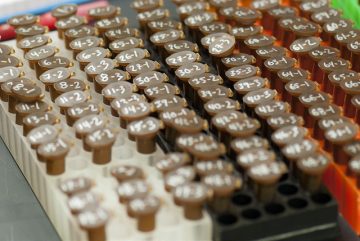
$27 million boost to UBC research into health, sustainability, IT
May 27, 2016
The University of British Columbia has received more than $27 million in funding from the provincial government for a number of research projects, announced on May 24 by Honourable Amrik Virk, Minister of Technology, Innovation and Citizens’ Services.
The investment from the BC Knowledge and Development Fund (BCKDF) will boost research into a wide range of areas, including diabetes, next generation lighting, crop adaptation, software development, and antibiotic development.
The Faculty of Land and Systems projects funded in the announcement include:
UBC Nutritional Biomarker Laboratory – Assistant Professor Yvonne Lamers
$200,000 BCKDF contribution. Funding will be used to purchase equipment to study the role of B-vitamins in disease development and create simple tools for diagnosing B-vitamin deficiencies, particularly in vulnerable groups such as newborns.
Single cell-level platform for detection and characterization of foodborne pathogens – Assistant Professor Xiaonan Lu
$101,798 BCKDF contribution. Funding will support the establishment of the only food safety engineering lab of its kind in Canada. Knowledge gained from this research will be used to reduce the risk of foodborne illness.
Molecular characterization of salmonella enterica in food supply systems – Assistant Professor Siyun Wang
$68,190 BCKDF contribution. Funding will support research to train people in food safety and devise cost-effective food-borne pathogen reduction technologies for commercialization. Research results will contribute to the production of high-quality food commodities from B.C.’s agrifoods sector for global distribution and the creation of food safety job opportunities in B.C.
Molecular and physiological regulation of fruit ripening and composition in grapevine – Assistant Professor Simone Castellarin
$125,000 BCKDF contribution. Funding will investigate the ripening processes in grapes and the biological mechanisms that determine fruit composition and wine quality. Knowledge gained will contribute to the growth of the B.C. grape and wine industry and leverage opportunity to interact with industry and train scientists.
Tagged with: